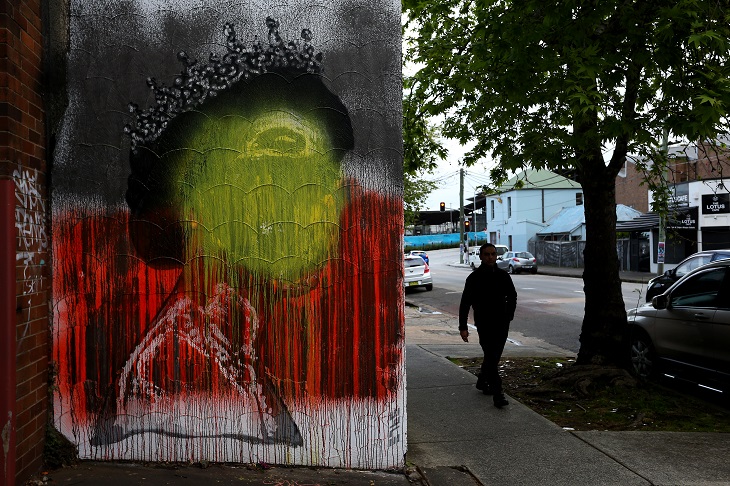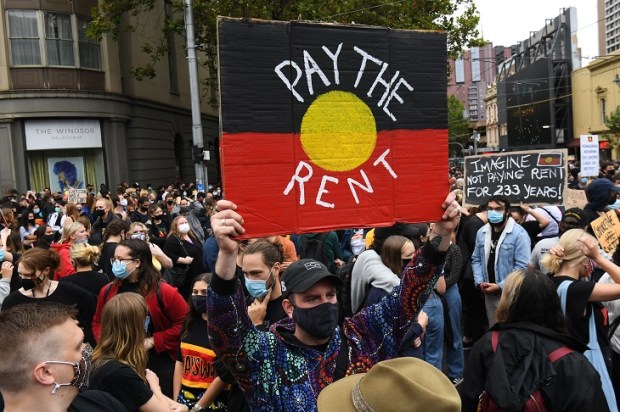For everyone who supports the idea of retaining the monarchy in Australia’s Constitution, there is one very important question that should be occupying their minds, even as they grieve the death of Queen Elizabeth II:
How can the monarch’s place in the Australia’s democratic institutions be defended against the presidential alternative?
First, the mistake should not be made of believing that the Australian people’s affection for Her Majesty, as reflected in the sky-high television ratings of her funeral, serve as evidence that their loyalty will be everlasting.
Those emotions will pale with time. Under the constant threat of yet another referendum by the disaffected, it is likely that the vast majority, particularly immigrants with little political knowledge of our Constitution and the monarch, will succumb to the promise of a fairy tale meant only for an entitled few.
There is a happy coincidence between the British monarchy and our popularly elected, responsible government, but the reason for that happiness is complicated. Only a fool or someone with ungodly hubris would wilfully abandon the first of the two, yet that is precisely what is being planned.
The monarchy and its monarch have been an intrinsic part of our democratic institutions since Federation, which is itself a symbol of peaceful co-existence.
Some Royalist sympathisers, without understanding how the monarchy survived, view this arrangement as if it occupies a divine right to rule with the same powers that actually took Charles I to the scaffold. Such sentiments ignore the words in 1879 of the clerk of Westminster, Thomas Erskine May, who said of a monarch with discretionary powers: ‘Power proceeding from the king, and exercised by himself in person, is irreconcilable with popular government.’
It defies belief that any sane man would think that democracy will be saved by an absolute monarch when it struggled for so long to be free.
In the opposite camp to the Royalists are the misnamed Republicans. They have waited impatiently for the passing of Elizabeth II believing that a referendum to replace Charles III with a president as our head of state will now be easier. Ironically, these Republicans promise to grant the president the same absolute powers that the Royalists claim for the monarchy.
That’s correct; the Republicans intend to replace a monarch with absolute powers with a president with absolute powers.
When considering those claims, the Republican argument for a president is more democratic than the Royalists’ case. Elections at least allow the people to choose whom they think is best. Royalists cannot guarantee that a monarch will use his reserve powers wisely, a problem compounded by governors-general who are partisan appointments.
In fact, by arguing that the monarch (and his dominion agents) need the reserve powers, the Royalists reveal that they are not good friends of responsible government and our democracy; for they begin from the assumption that the powers are necessary because democratic governments act illegally and the monarch must seize control from the government.
Politically speaking, however, is the only choice for our system actually between a monarch with reserve powers and a president with reserve powers?
The men who drafted our Constitution denied that the Constitution vested any discretionary powers in either the monarch or the governor-general, and that is the very reason why replacing the monarch with a president would poison our responsible government, and the proof of that can be found in the American republic.
The American founding fathers were well aware of the danger to democratic government of domestic factions forming around different opinions of the Constitution’s fundamental principles. Founding father James Madison wanted the American people to understand their Constitution so well that the goodness and justice of its principles would be like a political religion for its citizens.
America does not have responsible government. It has a President and Congress, the flag, and the Constitution. The President and Congress, however, are divided and essentially partisan, although they contrive to show a facade of goodwill to all. The American people are unified by their love their flag and their reverence for their Constitution; and for good reason. The American Constitution is probably the finest ever drafted by human beings.
Responsible government remains inherently partisan and divisive. It is the home of domestic factions that are entrenched in a rigid party system. It consists of a government and an opposition, two opposing sides of the political coin that contest for public support by dividing opinions along clear lines. If the monarchy could be contrived to unify the people, then it is possible to defend responsible government from its inherent partisan factions.
By the beginning of the 19th century in the United Kingdom, when very few could vote and elections were corrupted, governments were responsible to the monarch who appointed family and friends from the House of Lords as their ministers. When the Parliament reformed the British electoral laws, first in 1832 and then in 1867, the monarch found themselves obliged to appoint their Prime Minister and their government from the democratically elected House of Commons.
The responsible government we have today is only possible because the young Queen Victoria took the sage advice of the experienced statesman, Lord Melbourne, and never herself acted without the advice of a minister who alone could be held responsible by the House of Commons. Victoria understood that the survival of the monarchy in the democratic age required that it never appear partisan to the people. That change of orientation meant she was immune from and remained above the partisan divisions of the nation.
By following that policy, the monarchy has become the unifying figure throughout the Commonwealth because it reigns above the political battle of the parliamentary factions and remains at peace with the vast majority of the people. Responsible government continues as a factional battle, but the nation is unified by the monarch, something made apparent throughout Queen Elizabeth II’s reign and even by her death.
Not everyone was in love with Britain’s democratic reforms. The Canadian jurist Alpheus Todd regretted the levelling effect of democracy on government so badly that he claimed in the first edition (1867) of his Parliamentary Government in England that the absolute powers of monarchs from pre-democratic times still existed:
The sovereign exercises his opinion on the sentiments as well as capacity of his ministers; and if upon either he judges them to be incompetent, or in any degree unfit, it is the prerogative and, with perfect loyalty let me add, the duty of the Crown to dismiss such ministers.
Spencer Walpole, who edited the second edition of Todd’s book after Todd’s death, dismissed Todd’s argument in a short footnote: ‘In the present day, no monarch would even venture on parting with a ministry which retained the confidence of the House of Commons.’
Unfortunately, Todd’s argument convinced some jurists who held a similar affection of an older monarchy but who failed to understand how the democratic reforms had reshaped political power in Westminster and made responsible government incompatible with the monarch’s discretionary powers.
Once that incompatibility is properly understood, the national unity that the British and Australian peoples separately desire can be satisfied by a vision of the monarch as the impartial symbol of unity, unaffected by the partisan differences of policy that are vigorously litigated within the Parliament by the system of responsible government. This unity, no president can ever duplicate.
Replace the monarchy with a president whose identity changes with every term and in time the domestic factions in the Parliament will manifest in the president through factional loyalty. When that occurs, the unity promised by the Republican president will give way to government by faction for which no Constitution is necessary.
Got something to add? Join the discussion and comment below.
Get 10 issues for just $10
Subscribe to The Spectator Australia today for the next 10 magazine issues, plus full online access, for just $10.


























Comments
Don't miss out
Join the conversation with other Spectator Australia readers. Subscribe to leave a comment.
SUBSCRIBEAlready a subscriber? Log in